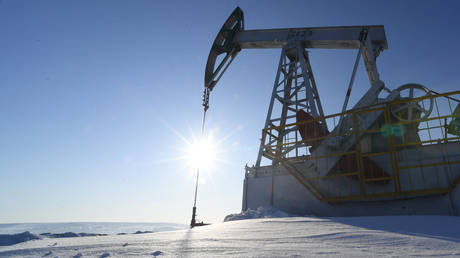
Russia’s oil and gas revenues hit 18-month high
Soaring crude prices have boosted Moscow’s income from energy exports, according to Rossiyskaya Gazeta
Russia’s proceeds from oil and gas sales surged to their highest level in one and a half years in October, Rossiyskaya Gazeta reported on Wednesday.
The country’s revenues from energy exports reached 1.63 trillion rubles ($17.7 billion) last month despite forecasts of a vast deficit, the outlet said. Only once have Russia’s energy revenues been higher – in April 2022, when profits reached 1.8 trillion rubles, the article stated.
Soaring prices of Russia’s flagship Urals blend of crude were among the factors contributing to record profits. In September, a barrel of Urals cost an average of $83.08, compared to the average price of $61.84 during the first 10 months of this year.
Russian energy companies pay a mineral extraction tax (MET), which varies depending on oil prices and accounts for the main share of government revenues from the sale of oil and gas. The MET alone contributed 950 billion rubles ($10 billion) to the budget last month, according to the outlet.
READ MORE: West’s Russian oil price cap not working – WSJ
On top of that, in October, Russian oil firms paid additional income tax (ATT) for the third quarter, adding another 593 billion rubles ($6.4 billion) to the budget, which marked an 18-month record.
Additionally, last month oil producers did not receive damper payments for September as market prices for gasoline and diesel fuel in Russia have surged sharply, a circumstance which helped the budget save substantially. Damper is paid to refineries for supplying fuel to the domestic market at prices which are lower than those of exports. For example, in August, damper payments from the Russian budget totaled almost 300 billion rubles ($3.25 billion), the outlet said.
For more stories on economy & finance visit RT’s business section


